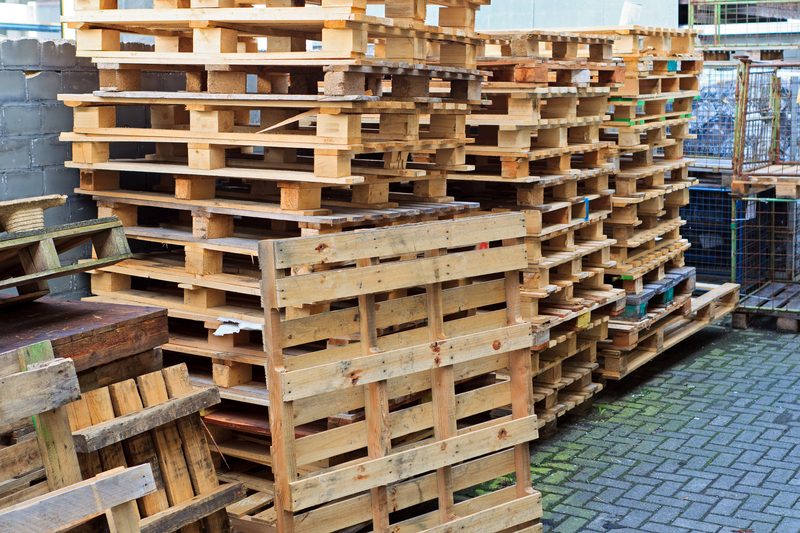Smart Tips for Saving Money on Bulky Waste Item Removal
Bulky waste item removal can seem like a daunting and expensive task. Whether you're clearing out old furniture, renovating your home, or simply decluttering, disposing of large household items is often costly and inconvenient. However, there are efficient ways to handle bulky item disposal without breaking the bank. In this guide, you'll find expert tips on saving money on bulky waste collection and removal services, from clever recycling and donation strategies to taking advantage of local council schemes. Let's explore the most effective, budget-friendly options for dealing with your unwanted cumbersome items!
Understanding Bulky Waste Items
Bulky waste refers to large household goods that are too big to be disposed of in regular trash bins or bags. These typically include:
- Old furniture (sofas, beds, wardrobes, tables, chairs)
- Large appliances (fridges, washing machines, ovens)
- Mattresses and carpets
- Garden waste (branches, large plant pots, lawn mowers)
- Specialty items (bathtubs, exercise equipment, doors, and windows)
Disposing of these items improperly can result in fines or environmental harm. That's why it's crucial to learn the affordable ways to dispose of bulky items and the rules in your local area.

Why Is Bulky Waste Removal Expensive?
Before diving into money-saving tips, it's important to understand why removing bulky waste often comes with a hefty price tag:
- Specialized Equipment: Bulky items usually require special collection vehicles and extra manpower for loading.
- Environmental Fees: Some items contain hazardous materials, like refrigerants in old fridges, which require careful and legal disposal, adding to the cost.
- Landfill Tipping Charges: Disposing of large quantities of waste at landfill sites incurs additional fees.
- Convenience Premium: Many professional removal services charge high rates for door-to-door pickup.
Finding ways to cut these costs is essential for anyone managing a major clear-out or move.
Smart Strategies for Affordable Bulky Item Junk Removal
With a little planning and research, it's possible to keep your bulky waste disposal costs to an absolute minimum. Here are the top "smart tips" for saving money on large-item removal:
1. Take Advantage of Local Government Collections
Many municipalities offer free or low-cost bulky waste collection services for residents. This can save you a significant amount compared to hiring a private removal company. Here's how to maximize local offerings:
- Check your city or borough's official website for bulk pickup schedules.
- Some councils permit free bulky item collections annually or a limited number of free pickups per address.
- Schedule your collection during the designated dates to avoid additional charges.
- Follow guidelines on item limits, types of items allowed, and how to prepare your waste for curbside collection.
Tip: Book your slot early as these services often have high demand and may require waiting several weeks.
2. Recycle or Repurpose Where Possible
One person's trash is another's treasure. If your bulky items are still in usable condition--such as gently-used furniture, electronics, or appliances--consider the following:
- Sell or donate furniture through local charities, thrift stores, or online marketplaces.
- Repurpose old items into DIY projects. For example, turn an old door into a table or bookshelves into garden planters.
- List items on "freecycle" websites where neighbors can collect them for free.
Not only does this approach save you money on removal, but it's also an eco-friendly solution that reduces landfill waste.
3. Use Bulky Waste Recycling Centers
Local landfill and recycling centers often accept large waste items at a much lower fee than private collection services. Some centers may even allow free drop-off for certain household items, especially if you're a resident. Steps to follow:
- Research local household waste recycling centers (HWRCs) and inquire about their charges for bulk items.
- Borrow a van or use a friend's vehicle to transport your waste directly.
- Some centers require proof of residency, so bring an ID or utility bill.
This is a great way to save money and ensure your items are recycled appropriately.
4. Compare Bulk Waste Removal Services
Shop around! The cost for bulky waste junk removal can vary dramatically among companies. Here are key ways to get the best deal:
- Request multiple quotes from national chains as well as local companies.
- Ask about "load and go" services which charge by the volume you fill in their truck, rather than a flat rate.
- Check online reviews to avoid being hit with hidden charges after pickup.
- Negotiate--many smaller companies are willing to beat competitors' prices.
Remember: The lowest price isn't always the best value. Ensure the company is licensed and compliant with environmental regulations.
5. Pool Resources with Neighbors
If several neighbors plan to get rid of large waste items at the same time, it makes sense to jointly book a bulky item removal service. This enables you to:
- Split transportation and disposal fees, reducing individual costs.
- Fill up a whole van or skip, making the service more efficient and affordable per person.
This collaborative approach is especially helpful during neighborhood clean-up days or after communal events.
6. Dismantle and Downsize Before Removal
The larger and heavier the item, the more costly it is to remove. Take the time to:
- Break down furniture (remove legs from sofas, disassemble bed frames).
- Remove doors or glass pieces from large appliances or wardrobes.
- Bag up smaller components separately where allowed.
This can significantly reduce the volume and potential bulky waste collection charges.
7. Be Cautious with Skip Hire
While hiring a skip is handy for ongoing projects, it is not always the most cost-effective bulky waste solution for a few large items. Skips come with:
- Daily or weekly rental charges
- Permit fees (if left on public roads)
- Restrictions on certain item types (TVs, fridges may attract surcharges)
To save money, only hire a skip if you have a substantial amount of mixed waste. Otherwise, opt for "man with a van" style pickups for less frequent, larger items.
8. Avoid Prohibited Dumping
Illegal dumping or "fly-tipping" is not only environmentally harmful--it results in hefty fines and potential legal trouble. Never be tempted to dump bulky items in unauthorized locations. It's ultimately more expensive than proper disposal.
What Bulky Waste Items Can You Remove for Free?
Wondering which bulky waste items you might dispose of at no cost? Many local authorities and charities will collect the following items for free or for a nominal donation:
- Reusable sofas and armchairs (if fire safety labels are attached)
- Dining tables and chairs
- Wardrobes and cabinets in good condition
- Large white goods (working fridges, ovens, washers)
Tip: Always check the condition requirements. Most charities won't accept damaged or excessively worn items.
How to Prepare Bulky Waste Items for Pickup
Proper preparation can save you money on bulky item collection and ensure smooth removal:
- Clean and empty all items--remove personal belongings, food, or batteries.
- Mention any hazards (like broken glass or protruding nails) when scheduling pickup.
- Place items outside or in a designated pickup spot on collection day.
- Label items clearly if you share a driveway or communal area.
Frequently Asked Questions (FAQs) About Bulky Waste Disposal
What is typically considered bulky waste?
Bulky waste includes large household items such as sofas, mattresses, large appliances, garden equipment, and home renovation debris--basically anything too big for your standard trash bin or bag.
Is it cheaper to remove bulky waste yourself?
Yes--if you own a suitable vehicle and have access to a local recycling center, DIY disposal can be the cheapest option. Just factor in your time, fuel, and possible fees at drop-off centers.
Can charities collect bulky waste for free?
Many charities collect reusable household furniture and large electricals free of charge. Items must usually be in good working order and have specific safety labels attached (such as fire-safety tags for sofas).
Are there restrictions on what can be removed?
Most services prohibit removal of hazardous waste (paint, chemicals, asbestos), certain electronics, and items infested with vermin. Check guidelines before booking.

Environmental Benefits of Responsible Bulky Item Disposal
Opting for responsible bulky waste removal not only saves you money but also benefits the environment by:
- Reducing landfill usage
- Increasing material reuse and recycling rates
- Lowering carbon emissions from fewer disposal trips
- Supporting local communities through charity donations
Whenever possible, aim to reuse, donate, or recycle before resorting to landfill collection.
Conclusion: Save Money and the Planet with Smart Bulky Waste Removal
Bulky waste item removal doesn't need to be expensive or stressful. With smart planning and knowledge of your local options, you can minimize costs, help the environment, and maybe even give your old goods a second life. Whether through government pickup, DIY recycling, or savvy use of collection services, these money-saving tips for bulky item removal ensure your home stays clutter-free and your wallet stays fuller.
Remember: Always explore free or low-cost community options first, recycle and donate whenever possible, and comply with all local regulations.
Ready to tackle your bulky waste? Take the first step today and enjoy a cleaner, more organized living space--without paying more than you have to!
